QuestionHello, I recently have gotten 2 Leopard Geckos. I have been dealing with reptiles for a couple years but these are my first Leos. I have a UTH and a regular 75w light bulb and it keeps the temps at the cool side about 83F and the warm side aroun 86F. I did tons of research and I am in to what is best for these two little guys. They are about 2 months old judging by size they are in a 20 gallon tank for now but soon to be upgrading and very possibly separating them. My question for you is I would like a light for at night time to help keep the temperature up and so that I can see them better. I do not want a infrared heat bulb because that will spike the temperatures a lot more then I need. I was wondering if I could use a regular color bulb. Like a "Party" light bulb in a red or maybe blue or black color. Could these be harmful? Can the Leopard Geckos register them with light as it would with any light or will it work in substitute to the heat bulbs (without the heat of course) Thanks for you time.
AnswerMy wife has had her 2 Leos for 10 years, and they are very easy to maintain if you maintain them properly.
Warm side should be closer to 90F directy under the basking source.
Keep geckos this young on paper towels and not sand or other substrates.
You should not need night time heating lights unless your night time temps are falling below 70F. It is natural for them to be exposed to even lower temperatures in the deserts of Pakistan or Afghanistan. If you really need additional heating, then you will probably have to get a larger under tank heater.
For low light, low temp, night time lighting; blue party lights work well ( not blacklights ), or you can buy a normal incandescent low watt bulb and paint it with glass craft paint.
Though many people say you do not need UVB lighting for nocturnal geckos, I disagree. Leo's, though active at night, are nevertheless exposed to UVB during they day when hiding between rocks, etc. There have been many people doing everything else right, who have their geckos end up with MBD. I recommend at least a fluorescent UVB tube light be used for several hours during the day, to simulate the UV exposure they might have in the wild.
http://www.drgecko.com
http://www.anapsid.org/leopardgek.html
http://www.geckosetc.com/htm/care.htm
http://www.thegeckospot.com/leohealth.html

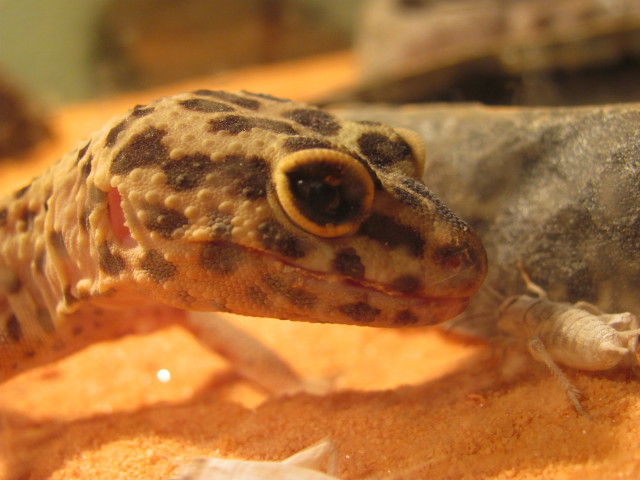 mouth issues
Questionigore
QUESTION: Hi its me again Haley. I
mouth issues
Questionigore
QUESTION: Hi its me again Haley. I
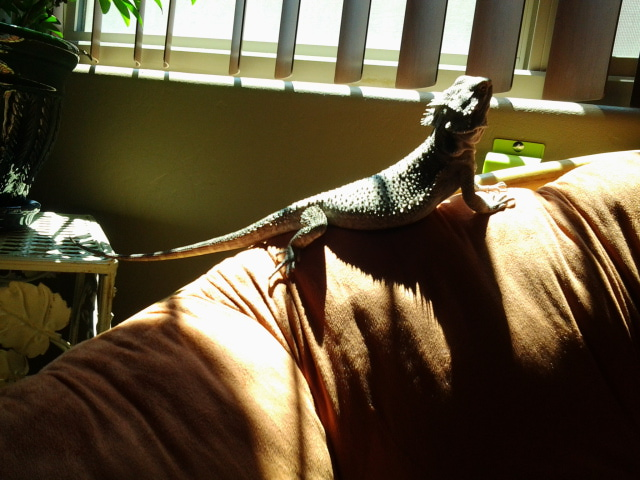 b.d eating habits
QuestionMulan
Mulan
QUESTION: Hello Traci
b.d eating habits
QuestionMulan
Mulan
QUESTION: Hello Traci
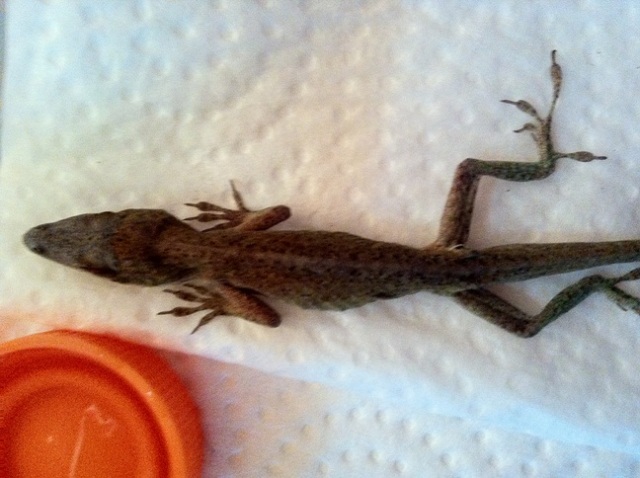 Very skinny anole
Question
Green anole
We noticed this morning tha
Very skinny anole
Question
Green anole
We noticed this morning tha
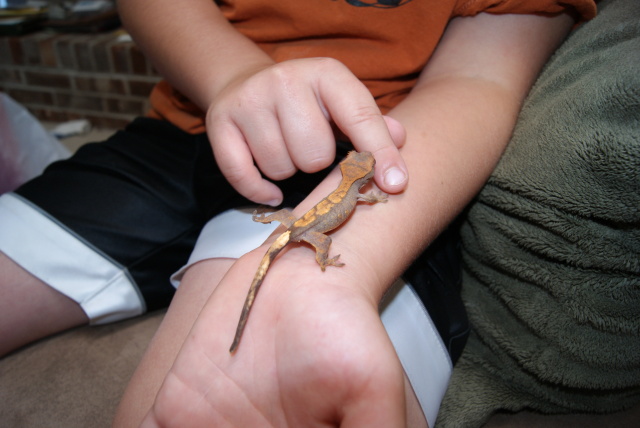 Crested Gecko lost his sticky feet
Question
Bark
My son has a crested gecko, Bark, that he
Crested Gecko lost his sticky feet
Question
Bark
My son has a crested gecko, Bark, that he
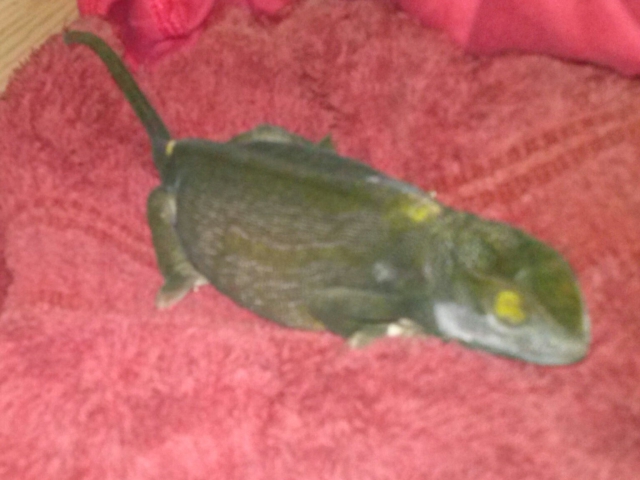 Flap neck Chameleon. Urgent help PLEASE!
QuestionPaula about 8 hrs afte
Paula straight af
Flap neck Chameleon. Urgent help PLEASE!
QuestionPaula about 8 hrs afte
Paula straight af